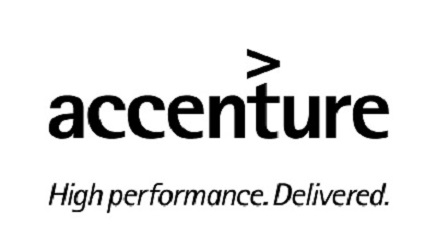E-Financial
Stevens IoTech, Accenture Launch Financial Services Analytics Curriculum

Stevens Institute of Technology, a premier, private research university, and have initiated a research and education collaboration to focus on analytics for the financial services industry.
As part of the three-year collaboration, Accenture and Stevens will conduct advanced analytics research projects and workshop sessions with Accenture’s financial services clients, and Stevens will begin offering a Financial Services Analytics (FSA) Graduate Certificate Program in January 2015, a statement jointly released by the two outfits read.
The FSA curriculum was developed to combine the latest academic thinking with industry-proven experience to address evolving analytics needs in the financial services industry, including aspects of financial big data and data visualization.
Coursework is being offered through Stevens’ School of Systems and Enterprises, Financial Engineering (FE) Division. The FE Division at Stevens offers comprehensive research and education programs at the master’s and doctoral levels, and is led by world-renowned and industry-connected faculty.
Qualified students will have the opportunity to participate in internships with Accenture and other leading firms. Scholarships funded by Accenture will be awarded to two students per year to cover tuition and fees for the FSA graduate certificate.
According to recent Accenture research, one of the main big-data challenges organizations are facing globally is the lack of talent to implement and run big data and analytics on an ongoing basis. For the financial services industry, the demand for professionals with credentials in financial services analytics is strong, and it is growing at a rapid pace.
Another report by Accenture indicates that the United States could face a shortage of more than 260,000 analysts by 2015.
The same report, “The Looming Global Analytics Talent Mismatch in Banking,” articulated specific strategies for closing the talent gap, including the addition of business analytics coursework at the university level.
The Financial Services Analytics Graduate Certificate Program is specifically designed to help close the talent gap through graduate-level coursework.
“Finding and accessing analytics talent will require innovative sourcing strategies to bridge the gap between supply and demand,” said John DelSanto, senior managing director for Accenture’s Financial Services group in North America. “Stevens is teaching and researching complex systems and data analytics at a level that ties into an entire class of problems that we are addressing with our clients. As a result, Stevens graduates are well prepared to work on some of the most important business challenges of our times in financial services.”
“During this ‘century of complexity,’ our ability to understand and analyze data with perceptive questions in mind, supported by our ability to visualize the results of our analysis to allow strategic insights and critical decision-making, will be a key competitive discriminator for all organizations – commercial, government and academic,” said Dinesh Verma, dean of the School of Systems and Enterprises at Stevens. “With this in mind, the Stevens-Accenture collaboration has been established to develop optimal analytical competencies for the financial services enterprise.”
“In today’s financial environment of large data sets and data overload, there is a need for techniques to discover unique insights that allow businesses to increase the effectiveness of business operations, enhance customer relationships, improve product offerings and improve risk analysis and risk management,” said Dr. Rupak Chatterjee, an industry professor and deputy director of Financial Engineering at Stevens Institute of Technology. “The Stevens FSA curriculum was created based on the needs of Accenture’s clients in all of the major areas of the financial services industry – companies that can benefit from cutting-edge tools for the modern data-driven world. The FSA certificate will put students at the leading edge of financial analytics and technologies that are so critical for the big-data needs found in almost all aspects of life.”
The FSA Graduate Certificate Program features classes in topics such as: Data Quality and Composition; Advanced Data Mining, Analytics and Visualization; Creation of Databases and Decision-Making Tools and Enterprise Level Data Analytics and Delivery.
The 15-credit graduate certificate program is considered an option for completing a Financial Engineering Master’s Degree. Classes will be taught by Stevens scholars in Accenture’s midtown Manhattan offices, online and on Stevens’ campus in Hoboken, N.J.
Accenture is a global management consulting, technology services and outsourcing company, with more than 305,000 people serving clients in more than 120 countries.
Also, Stevens Institute of Technology, The Innovation University®, is a premier, private research university situated in Hoboken, N.J. overlooking the Manhattan skyline. Founded in 1870, technological innovation has been the hallmark and legacy of Stevens’ education and research programs for more than 140 years.
Within the university’s three schools and one college, more than 6,300 undergraduate and graduate students collaborate with more than 350 faculty members in an interdisciplinary, student-centric, entrepreneurial environment to advance the frontiers of science and leverage technology to confront global challenges.
E-Financial
UBA launches instant digital platform for seamless account opening across Africa, diaspora

United Bank for Africa (UBA) Plc, Africa’s leading financial institution, on Tuesday unveiled a groundbreaking instant account opening platform, revolutionising banking access for millions across the continent and diaspora communities worldwide.

UBA
The fully digital innovation, accessible at ubagroup.com, empowers prospective customers to complete account onboarding online in minutes, bypassing paperwork, branch visits, and lengthy processes that have long hindered financial inclusion. Supporting Naira and Diaspora accounts with multi-language options, the platform operates seamlessly on computers, tablets, and smartphones, catering to UBA’s diverse pan-African footprint spanning 20 countries, the UK, US, France, and UAE.
Shamsideen Fashola, Group Head of Retail and Digital Banking, described the launch as a pivotal step in democratising finance. “At UBA, we are committed to redefining the customer experience through innovation and simplicity,” Fashola said. “This fully digital solution underscores our belief that banking should be accessible, secure, and truly borderless.”
The seven-step process is intuitive: customers select “Open a Savings Account,” input their Bank Verification Number (BVN), undergo facial verification, confirm an OTP, update details, upload documents, add a digital signature, and receive an instant account number. This bridges traditional banking rigour with fintech speed, incorporating digital KYC while upholding stringent security.
Built with compliance at its core, the platform adheres to Nigeria’s Data Protection Act (NDPA) and Europe’s GDPR, safeguarding user privacy amid cross-border operations. Unlike conventional methods requiring physical biometrics, it enables immediate enrolment in UBA’s digital channels, blending convenience with regulatory depth.
Alero Ladipo, Group Head of Brand, Marketing, and Corporate Communications, highlighted customer-centric design. “Today’s customers expect speed, convenience, and compliance without compromise,” Ladipo stated. “We have blended industry-leading digital onboarding with robust standards for a seamless experience matching global best practices.”
The move reinforces UBA’s dominance in technology-driven inclusion, serving over 50 million customers with 30,000 employees and pioneering retail, commercial, and institutional services. Analysts view it as a strategic edge over fintech rivals, accelerating Africa’s digital economy amid rising diaspora remittances and intra-continental trade.
As Nigeria and Africa push financial digitisation, UBA’s platform positions the bank to capture untapped markets, fostering economic growth through barrier-free banking
E-Financial
Kuda MFB Secures National Microfinance Banking Licence, Sets Stage for Nationwide Growth

Kuda Microfinance Bank (Kuda MFB) has received a license from the Central Bank of Nigeria (CBN) to operate as a National Microfinance Bank, which means that it can now have a physical presence across Nigeria.

Musty Mustapha, MD/CEO of Kuda MFB
With the Unit Microfinance Bank licence it held until December 2025, Kuda MFB’s physical operations were limited to a specific location. The national licence removes those geographic restrictions, allowing the bank to open customer experience centres in multiple parts of the country. It also regularises Kuda MFB’s licensing status in line with the Central Bank’s framework for microfinance banks.
According to the bank, the national licence is about regulatory alignment and operational flexibility rather than a shift away from its digital-first model, so it will continue to lead with digital banking services, offering Nigerians the convenience of making transfers and payments, saving, and accessing instant credit through the Kuda app.
Musty Mustapha, MD/CEO of Kuda MFB, said, “Securing a national microfinance banking licence is an important step for us as a regulated institution. It strengthens our relationship with the Central Bank and affirms our commitment to operating at the highest standards of compliance as we scale. While we remain digital at our core, this licence gives us the flexibility to create more physical touchpoints where customers want in-person support or engagement, allowing us to serve Nigerians across the country in whichever ways are most convenient for them.”
Subject to regulatory approval, Kuda MFB plans to open more experience centres designed for customer support and community engagement, in the style of its existing experience centre in Yaba, Lagos, where customers and the general public can speak directly with the Kuda team to get help and learn about the microfinance bank’s products and services.
Kuda MFB’s national licence does not change its existing product offerings or transaction capabilities, but it provides the regulatory backing for a nationwide presence.
E-Financial
NDIC Seeks EFCC’s Support to Trace, Recover Assets of Failed Banks

Nigeria Deposit Insurance Corporation (NDIC) and the Economic and Financial Crimes Commission (EFCC) have agreed to strengthen collaboration to enhance the investigation and prosecution of offences that lead to bank failures, while also improving the recovery of assets and debts of failed banks.

Thompson Oludare Sunday, managing director and chief executive of the NDIC, made this known during a courtesy visit by the Corporation’s management team to Olanipekun Olukoyede, executive chairman of the EFCC, at the Commission’s headquarters in Abuja.
In a statement issued on Sunday by the NDIC’s Hawwau Gambo, head of Communication and Public Affairs, Sunday said robust partnership with the EFCC is critical to the effective liquidation of failed banks, a process that involves asset realisation and debt recovery, with proceeds used to settle uninsured deposits.
He noted that cases of asset stripping and concealment require coordinated efforts, particularly in asset tracing, recovery and enforcement, adding that the EFCC’s expertise is vital in achieving these objectives.
Sunday also identified banking fraud investigations and the prosecution of individuals whose actions contribute to bank collapses as key areas where both institutions can further strengthen their cooperation.
He stressed that NDIC plays a vital role in maintaining financial system stability through the execution of its four statutory mandates in deposit guarantee, bank supervision, distress resolution and bank liquidation.
According to him, the Corporation’s overarching goal is to safeguard depositors’ funds, ensure prompt compensation when banks fail, and sustain public confidence in the financial system.
He also observed that both institutions share common values of integrity, professionalism and accountability, describing the visit as a step towards reinforcing institutional partnership, especially in areas where EFCC’s investigative and prosecutorial capacity is essential to NDIC’s mandate.
“We aim to further strengthen our collaboration, deepen institutional synergy and explore additional avenues for mutual support in the pursuit of national financial system stability.
“The EFCC has been our partner and we want this to continue. We look forward to an expanded and more impactful partnership between our two esteemed institutions.
“Your experience has and will continue to greatly enhance our recovery efforts. Additionally, we have that strategic responsibility for prosecuting individuals whose actions contribute to the failure of banks. We therefore seek closer collaboration with the Commission in this critical area”
Responding, the EFCC boss, Olukoyede, reiterated the Commission’s commitment to its longstanding working relationship with the NDIC in tackling financial crimes within the banking sector.
He acknowledged the history of cooperation between the two agencies, particularly in investigations and capacity development related to banking operations.
Olukoyede also briefed the delegation on key departments within the EFCC, including the Bank Fraud Section, which handles matters related to the NDIC.
He encouraged the Corporation to submit any outstanding cases for prompt assessment, noting that this would enhance tracking, accountability and case resolution.
The EFCC Chairman further highlighted the role of the Commission’s Fraud Risk Assessment and Control Department, which focuses on proactive monitoring, compliance, sound risk management and internal controls in both public and private sector institutions.
He described these efforts as part of the EFCC’s broader mandate to protect and strengthen the Nigerian economy.
Olukoyede assured the NDIC of the EFCC’s continued support in deepening institutional synergy to combat financial crimes, improve asset recovery, and ensure that offenders who undermine the banking sector are brought to justice.

 E-Financial3 days ago
E-Financial3 days agoCBN Upgrades Licences of Opay, Moniepoint, Kuda, Palmpay, Paga to National Status
- E-Financial3 days ago
Nigeria’s 9 Top FinTech Firms Valued at $10.6Bn in January 2026

 News3 days ago
News3 days agoTech Executives Double Down on AI, Talent and Adaptive Strategies to Lead in the Intelligence Age

 E-Financial3 days ago
E-Financial3 days agoNIBBS to Boost Financial Inclusion with Offline Payment Solutions

 News3 days ago
News3 days agoDHQ Indicts Brigadier General Abubakar Sadiq, 15 Others in Alleged Coup Plot againt Tinubu

 E-Financial2 days ago
E-Financial2 days agoPayPal Goes Live in Nigeria through Paga

 E-Business3 days ago
E-Business3 days agoFirm Identifies AI as Common Denominator in Entertainment Industry’s 2026 Security Threats

 Broadcasting2 days ago
Broadcasting2 days agoNITDA, NBC Explore Strategic Collaboration on Digital Transformation, Media Regulation



























